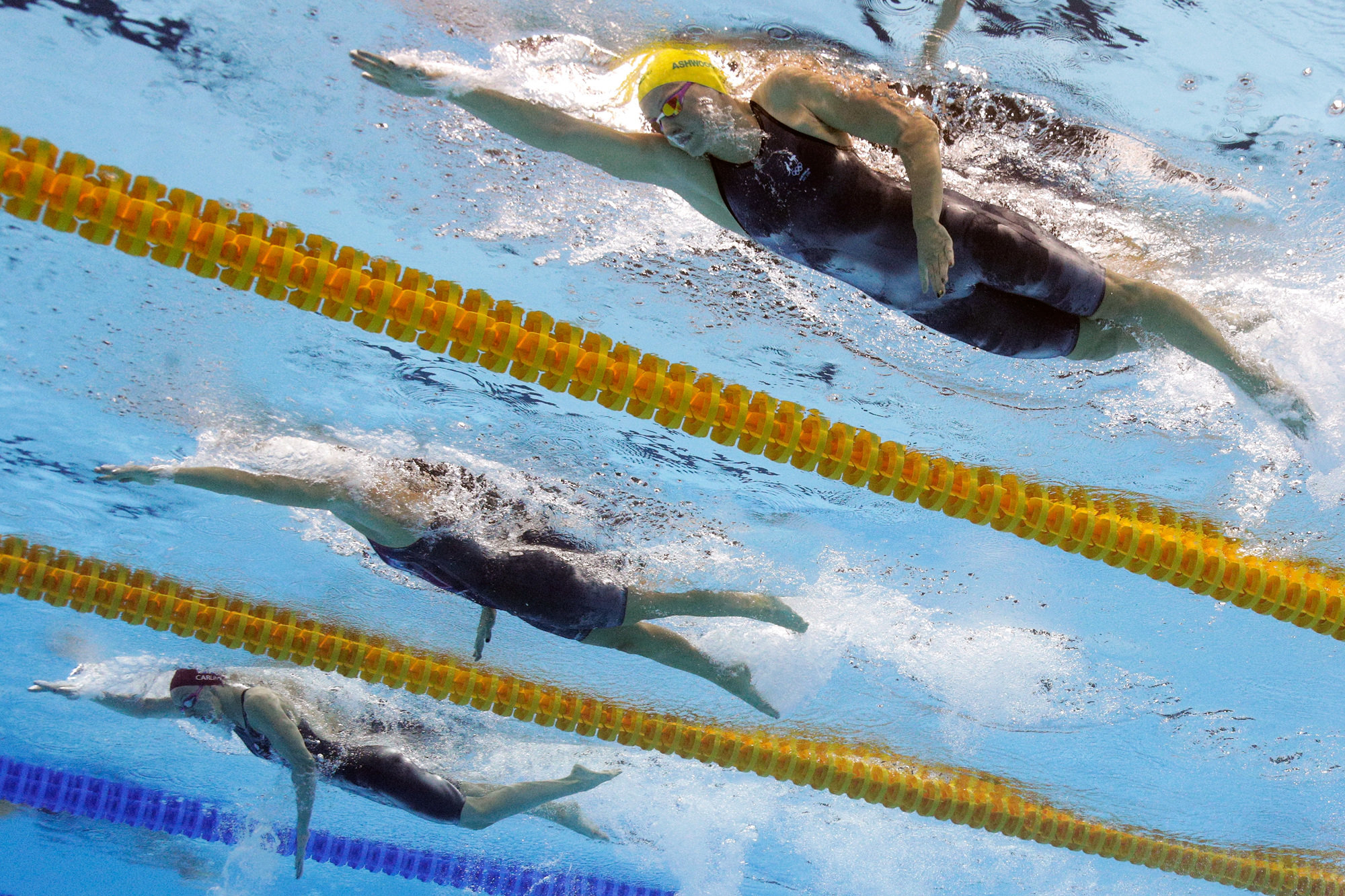
Women athletes and their bodies are constantly criticized and policed, and when it happens to young athletes the effects can be detrimental.
In September, one high school swimmer in Alaska was body-shamed for having a swimsuit that showed off too much skin and ended up being disqualified despite winning a match. The discriminatory ruling sparked a backlash, and people accused the referee of racism and sexism against the young mixed-race athlete.
After waves of support came in for the swimmer, the disqualification ended up being reversed and she nabbed her win. But the conversation around women athletes' bodies continues to be all too prevalent.
Breckynn Willis, a senior at Dimond High School, was disqualified following her winning match for wearing a swimsuit that was too revealing.
Willis's former coach Lauren Langford wrote an impassioned blog post about the incident and felt that the disqualification was potentially racially motivated and discriminatory.
"As a swim coach at another school within the district that regularly competes with Dimond High, I’ve watched this scandal divide my swimming community. It has caused my own athletes to be needlessly self-conscious about the appearance of their bodies, which preoccupies them just as much, if not more, than the quality of their performances. What’s clear is that these girls’ bodies are being policed — not their uniforms," Langford writes.
Willis is one of the few nonwhite swimmers on the team, and despite every other person on the team wearing an identical swimsuit, Willis was the one to be called out.
Langford speculates that it is because of Willis's curvier figure and darker complexion that she was singled out in the swim attire. Langford wrote, "Some will argue this scandal has nothing to do with race. But the issue becomes glaring when officials are overheard acknowledging that white athletes are baring too much skin as well, yet they’ve never been disqualified for a similar violation."
Parents at the school reportedly took photographs of Willis and her sister in their suits, without their knowledge or consent, and spread them around via email in an effort to showcase the revealing nature of the suits. What they were really doing was body-shaming these high school girls.
Langford continued, "If you do not like the way that swimsuits fit on these girls’ bodies then don’t look; they are minors, children, and no one should be looking at them anyway. We cannot take back what has already unfolded but we can make sure it does not happen going forward."
Swimsuits that are given to students by the school often don't comply with the regulations anyway.
Langford also pointed out that most of the suits issued as school uniforms are from brands that don't comply with regulations. So it wasn't Willis's fault anyway for wearing the uniform given to her. Luckily, the disqualification was overturned and Willis was able to nab her win. Plus, the referee who called out the violation was decertified.
Willis and her sister received a huge amount of support following the decision.
Dove, a company that focuses on body positivity, took the time to reach out to the student athlete. "Don’t disqualify girls’ bodies. Real beauty is for every body. We stand with Breckynn Willis," the soap brand's Twitter account wrote.
In an announcement, the Anchorage School District's Superintendent Dr. Deena Bishop wrote, "The underlying message from this decision is that even when wearing a team-issued uniform, female athletes still need to worry about what they are wearing or risk being disqualified. Young women should never have to worry about their body image when they are competing in sports. They should only have to focus on their skills and competing in the pool, on the field, or the court. This decision is truly unfortunate and appears to ignore ASAA’s mission of advocating for student athletes."
The Alaska School Activities Association decided to overturn the referee's decision, and Dimond High School athletics listed Willis as their student athlete of the month.
Willis ended up getting to keep her win and was the student athlete of the month after the issue was resolved. She became an example of the unfortunate sexism and racism in the swimming community. Thankfully Willis had the support of coaches and people around the world, who were shocked and disheartened by the ref's poor call. Now she can focus on her true passion and keep swimming.



